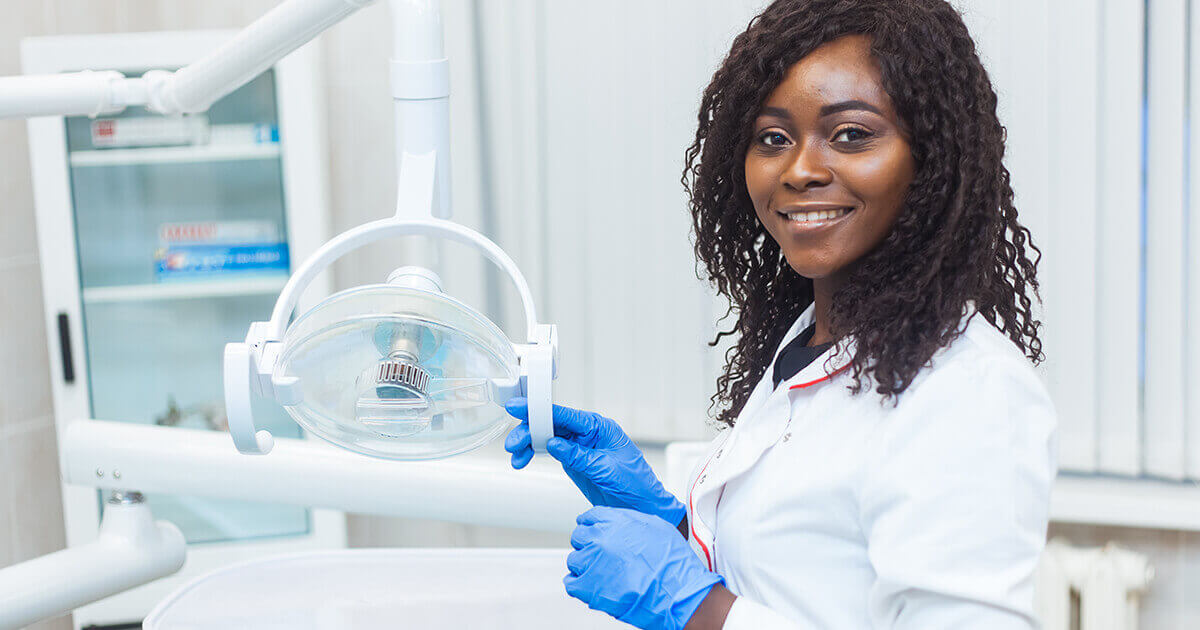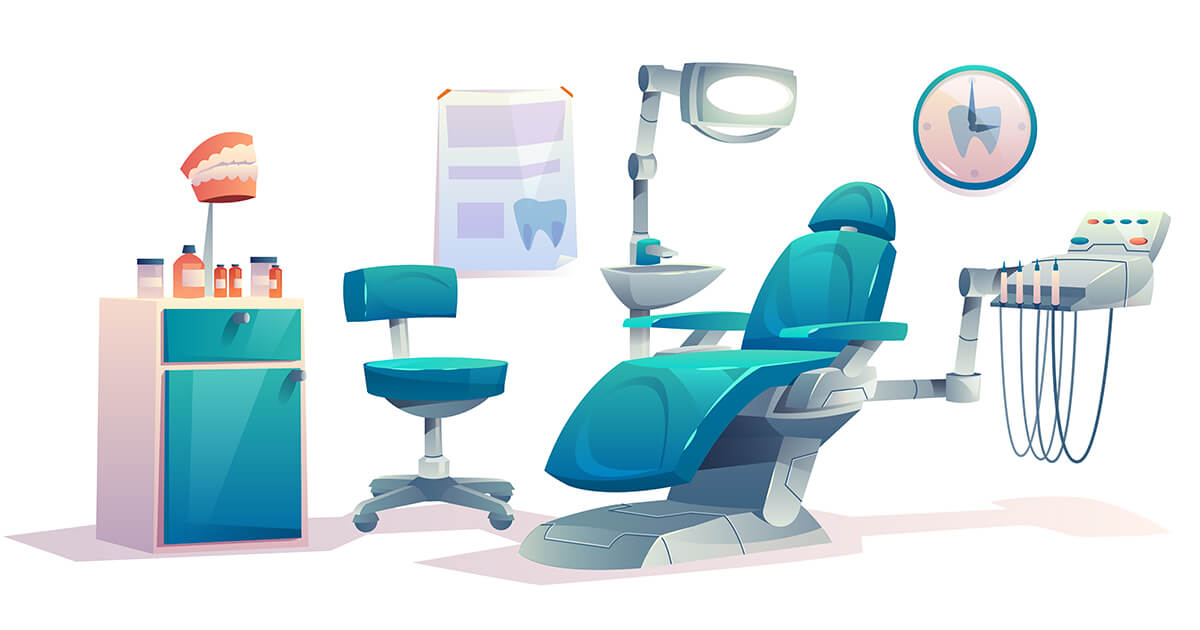DSOs are here to stay. They are spreading nationally, and many believe they will be the largest providers of dental services very soon. Why? The obvious reason is that dentistry can be very profitable and provide a steady return to investors.
Why did it take so long for investors to jump into the business of dentistry?
One of the main reasons is that, until recently, most dentists wanted to be their own boss and would not consider working in a corporate setting. Current dental graduates are saddled with up to $500K in debt and are concerned about taking on more debt to own a dental business. The new “millennial” mindset also strives for more “life balance.” Corporate dentistry claims to solve both of those issues and spends a great deal of money promoting that concept to dental students.
In the past, about 90 percent of dental school seniors would say they saw themselves in private practice within a few years of graduation. Now only about 20 percent of dental school seniors see themselves as practice owners. Corporate dentistry now has plenty of young dentists to fill their positions. DSOs are marketing themselves as the solution to everyday practice problems of both buyers and sellers, but are they providing the answers to either group? I say the answer is no.
Large practices that employ associate dentists, do so for the profit potential. Although this is a good business plan for the owner, most dentists don’t understand just how much profit they sacrifice when choosing to be paid a percentage of production and overlooking practice ownership.

The following example is a true story: After selling to a large group, one dentist I know worked at the practice for the standard two years to collect the total purchase price. What happened is, this owner willfully turned himself into an associate without understanding the profit he left on the table.
His original practice collected about $1,000,000. His true profit, after adding back all the benefits he ran through the office, was 37.5 percent, or $375,000. (I am from California, and that number would be good. In the Southeastern part of this country, that number might be as high as 50 percent, which means a buyer there could look for a practice doing around $750K and achieve the same profit!) His hygiene department contributed the normal 25 percent of the collections to the practice. The large group that purchased his practice stipulated he had to stay on for two years and keep the collections at that same level during that time. They paid 24 percent of collections and agreed to go as high as 28 percent if he hit his goals.
For two years, he worked for 28 percent of collections (based on the same $750,000 level of production he had produced as an owner). Therefore, for the same amount of production, he earned a salary of $210,000 instead of the $375,000 he took home as an owner. It gets even worse! His salary of $210,000 was taxed. His previous profit of $375,000 had many legal tax advantages. His tax bill was actually higher as a $210,000 employee, compared to being an owner with a $375,000 profit! As an owner, he hadn’t realized that he was being paid 50 percent of his production ($375K/$750K).
Conclusion: You can take home about twice as much money for the same amount of production as an owner, compared to being an associate. To all the young dentists being told that corporate dentistry will help pay off your large debts, the reality is that the best way to retire ANY debt is to get paid almost twice as much for your work! I can also assure you that “taking away all the headaches of ownership” is only PARTIALLY true. My acquaintance in the example was still the day-to-day “Go-To” person, handling all the daily “headaches,” even though he wasn’t signing the checks anymore.
Owning your own practice has its benefits.
In the above example, the debt service to buy that practice would be about $26,000 on a 10-year note. So, that means choosing between making $210,000 fully taxed, or a profit of about $349,000 after debt service. The extra $140,000 a year (approximate) would go a long way in paying off debt. Earl Douglas, DDS, MBA, BVAL also addresses this from a different angle in his article, “Your Multi-Million Dollar Decision.” (https://www.adstransitions.com/article/multimillion-dollar-decision/)
We both believe, as past practicing dentists, any way you slice it, your option to own your own practice and be your own boss, results in fewer hours and more income. Income to live on and as an addition to your retirement savings. These are important benefits of ownership.
Misinformation about the dental industry.
So back to “The Million Dollar Question.” There is so much information and “misinformation” available to young dentists on the web and through podcasts that I believe the old phrase “analysis paralysis” is appropriate now more than ever. Young dentists are told they need a “team” of experts to decide on what practice they should purchase (assuming they have already figured out ownership will fulfill their financial and family goals).
When I graduated from dental school in 1983, the average school debt was less than 1/10th of what it is today, but the interest rates on a practice loan were around 15 percent, compared to less than 4 percent today, so the financial strain was not entirely different, compared to now. (Note: Contrary to what DSO’s are telling young dental graduates, 100 percent financing is available to almost every dentist that has been out of school for at least 18 months.) The average 1983 dental school graduate’s attitude was that we were going to make private practice work with a bold and strong attitude. We still did our “due diligence,” but I can assure you, we did not have “analysis paralysis.” The only question that needs to be answered in the due diligence process is “What will I produce/collect once I take over this patient base?”
The Goldilocks Phenomena: Your team is there to help you make a good decision, but you need to take ownership of that decision. Only you can answer the million-dollar question.
“The Goldilocks principle” is named by analogy to the children’s story, The Three Bears, in which a little girl named Goldilocks tastes three different bowls of porridge, and she finds that she prefers porridge which is neither too hot nor too cold, but has just the right temperature.[1] Since the children’s story is well known across cultures, the concept of “just the right amount“” is easily understood and is easily applied to a wide range of disciplines, including developmental psychology, biology,[2] economics and engineering.” (From Wikipedia)
The Dentistry Connection?
This is arguably the most important principle in a practice sale! The prices of dental practices will fall within a 10 percent range of the local multiple of their gross receipts. (The national average is 67 percent of collections.) The value of the practice is in the patient base, in this analogy, the porridge. And we all have a preferred “recipe” for treatment: I can put a patient in the middle of 10 dentists, including myself, and get 10 different treatment plans. This is a stunning phenomenon.
Some of the treatment plans will amount to a few hundred dollars, watching some areas, while others are a comprehensive treatment plan that might cost the patient $5000 or more. If an average practice does 1000 exams per year, just imagine the difference of production in the $5,000 circumstance. However, even if the average practice saw 25 new patients a month, or 300 new patients a year, and the differential between the doctor’s diagnosis was just $1,000, there would be a $300,000 differential in production just from the new patient diagnosis!
It should be self-evident that the due diligence in a dental practice needs to be done by the purchasing dentist themselves. Your accountant, attorney, dental consultant or even another dentist cannot determine if the treatment plans in any practice are “too hot,” “too cold,” or “just right” for you. An accountant should be able to tell you if the practice cash flows enough to meet your needs, but they are assuming that the buying dentist will produce exactly what is shown on the historical tax returns.
It’s all what you make of it.
 The factor to consider is all dentists have different skill sets. Based on your skill sets, compared to the seller’s, you might double the production with the same patients in the practice, or you might only diagnose half of the treatment that the selling dentist did. Guess what? They will both be priced at market metrics for gross receipts and cash flow for the current doctor’s skill sets.
The factor to consider is all dentists have different skill sets. Based on your skill sets, compared to the seller’s, you might double the production with the same patients in the practice, or you might only diagnose half of the treatment that the selling dentist did. Guess what? They will both be priced at market metrics for gross receipts and cash flow for the current doctor’s skill sets.
Don’t get caught up in the “price” of the practice. The price of the practice is secondary when $100,000 on the price tag of the practice translates into about a $1,000 difference in your monthly loan payment (basically one crown a month). Only you can tell if the “porridge” is just right, or if you can heat it up a bit! If it is already way too hot and there is no way you can replicate what the seller does, simply find a practice that matches your skill sets. What you can do with a patient base trumps any Delta Dental fee schedule issue.
The Importance of Knowing Yourself.
Each dentist will be content with a different level of production. This is a relative term and, regardless of the cash coming through the door, everyone has different goals and a different skill set. My advice is to purchase the largest practice you are capable of handling to pay off your school loans as quickly as possible once you hone your skills.
Scratch Starts vs. Practice Purchase.
Building out and equipping a new, two-operatory practice now costs around $500K. There are no patients to start with, only bills! For $500K, you can buy a practice that already throws off several hundred thousand or more as a profit, not just gross receipts! It always makes more sense to buy a practice producing income, even a smaller practice that an “old boomer” is ready to let go of, knowing you will have to upgrade much of the office. Most older docs, ready to retire, have lower-producing offices that are underperforming to a great extent, based on their current patient base. These are usually diamonds in the rough, but again, only your own personal due diligence can determine this.
One of the Biggest Decisions You Will Ever Make.
Buyers have more choices now with the lowest interest rates in the history of the modern economy. Take charge of your decision-making process. Choose wisely, employ good staff and you will pay off your debts, live more comfortably and be able to afford more time away from work, as your staff should be able to help relieve you of the burden of ownership headaches.
Analyze all input from your advisors with the “Million Dollar Question” in mind. If the input does not help with that question, eliminate that “noise” so that you can make your decision with the information that matters.
About the Author
Dr. Tim Giroux established his own dental practice in Scottsdale, Arizona, upon graduation from Creighton University, School of Dentistry in 1983. Relocating to Northern California upon selling his highly successful practice after 15 years, Dr. Giroux brings a unique perspective and personal experience in dental associateships, practice start-up, sales, and work-back situations to serve and assist you during your exciting transition! He especially enjoys guiding young dentists and helping them fulfill their dreams when they purchase their own dental practice.
LinkedIn | Facebook | Instagram



 The factor to consider is all dentists have different skill sets. Based on your skill sets, compared to the seller’s, you might double the production with the same patients in the practice, or you might only diagnose half of the treatment that the selling dentist did. Guess what? They will both be priced at market metrics for gross receipts and cash flow for the current doctor’s skill sets.
The factor to consider is all dentists have different skill sets. Based on your skill sets, compared to the seller’s, you might double the production with the same patients in the practice, or you might only diagnose half of the treatment that the selling dentist did. Guess what? They will both be priced at market metrics for gross receipts and cash flow for the current doctor’s skill sets.